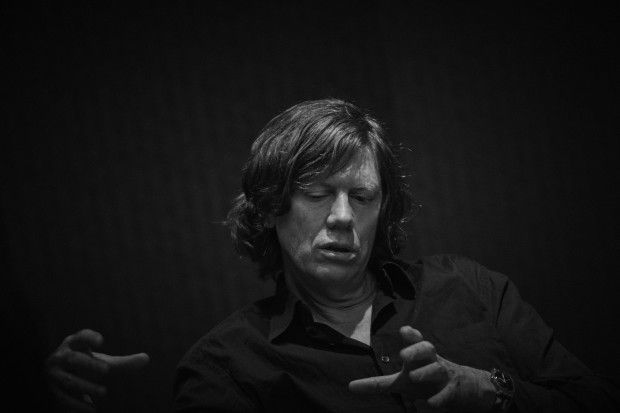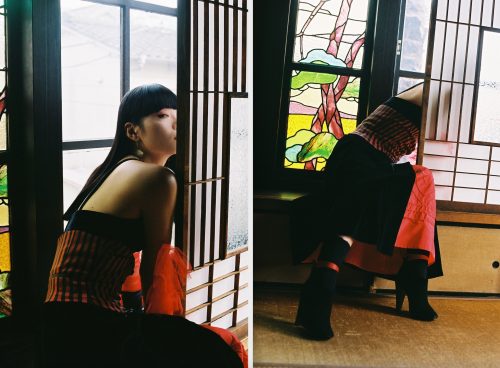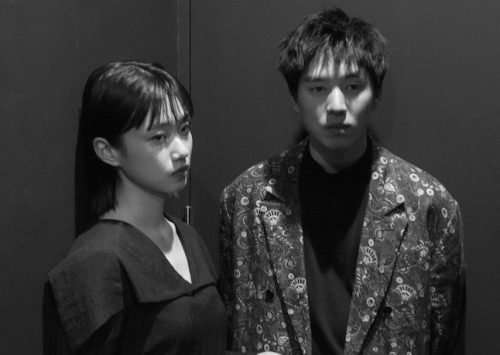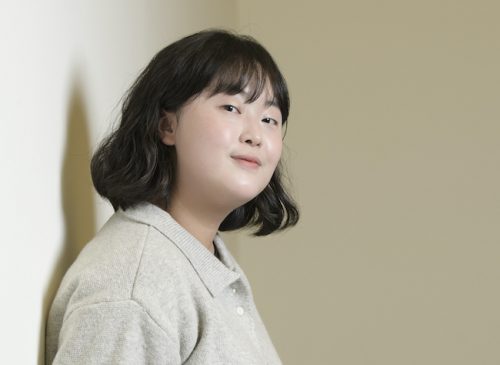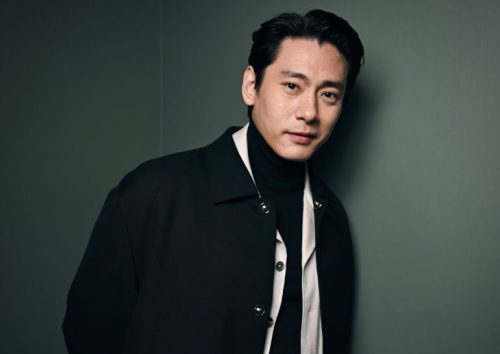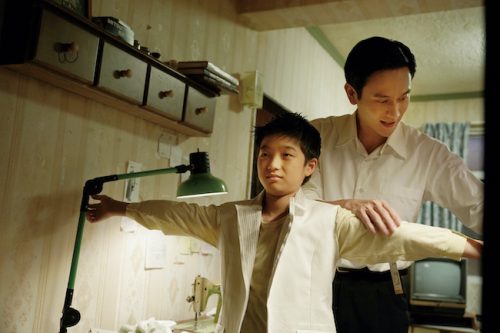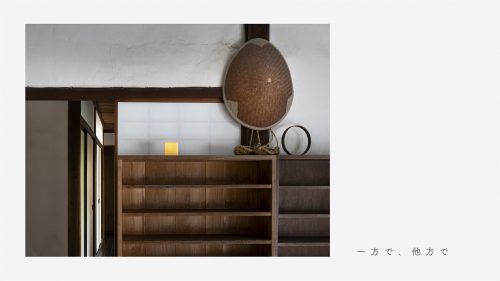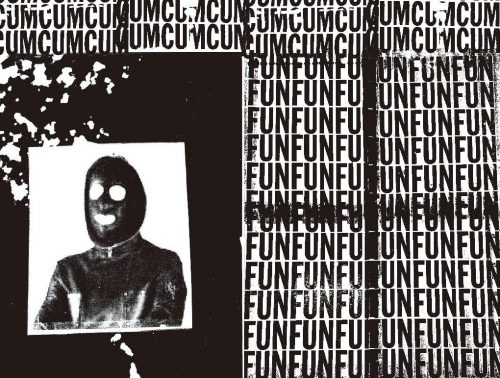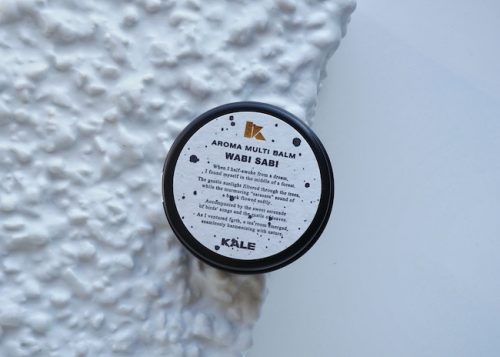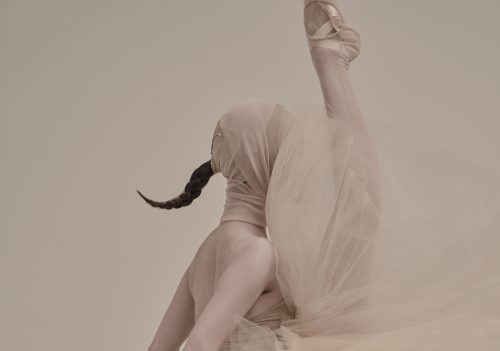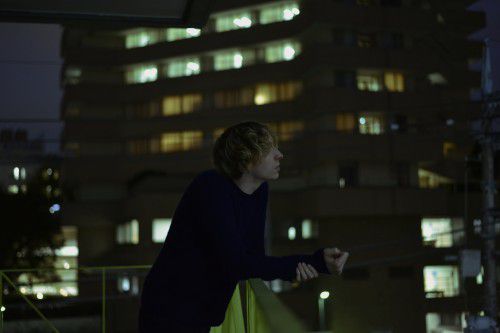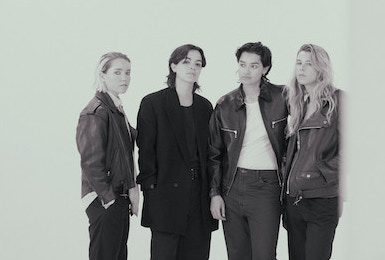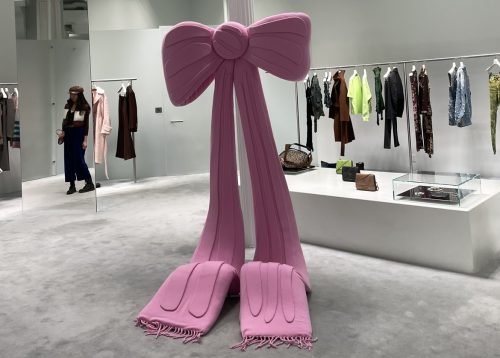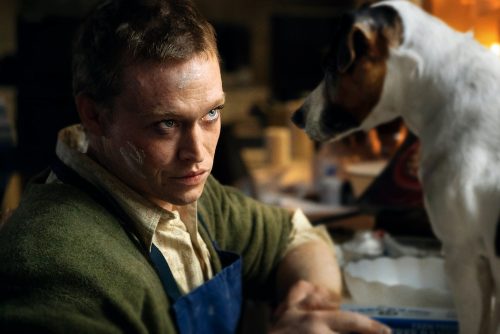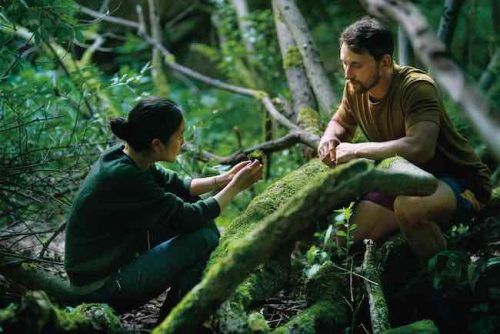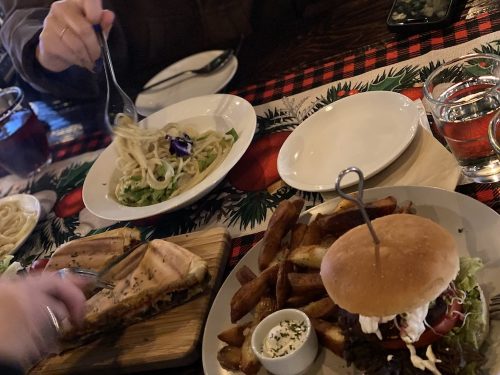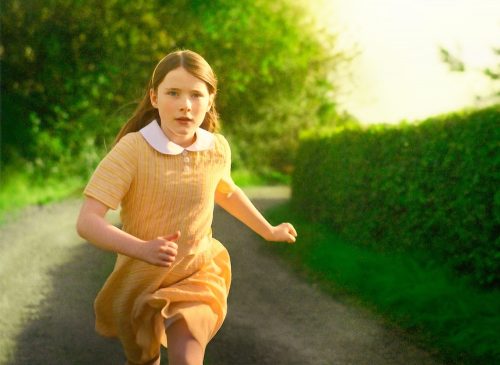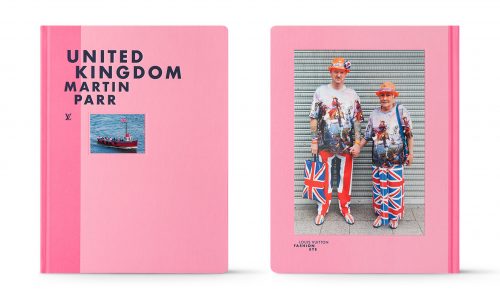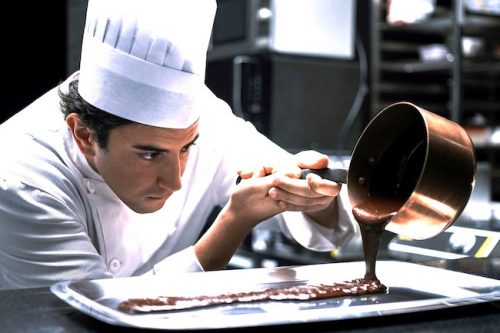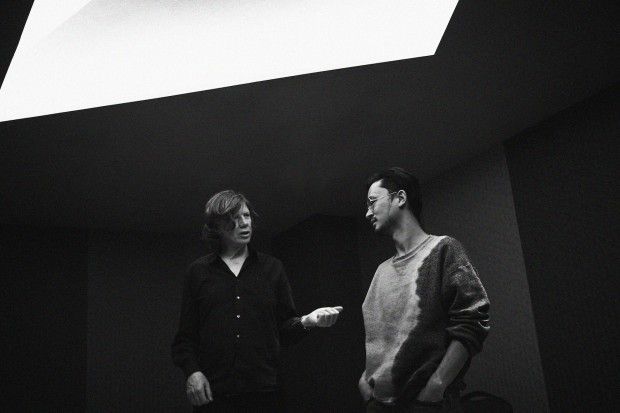
– “Petrolz” is the name of our band, and this is the first whole album we’ve put out last year. This is our tenth year, and this is our first ever record.
TM: Really? After ten years? Why did it take so long?
– We didn’t have a chance to.
TM: Oh, really.
– We did EPs and stuff like that. We’re really faithful to the art as creators so we just wanted to find the right timing.As you can see, it did not fit in a CD shop.
TM: Yeah, you have to lean it against the wall.
-W e got a lot of returns because of that, since it got damaged.
TM: Do you have a vinyl?
– For some of our stuff.
TM: That’s really cool. I’m looking forward to hearing it.
– Please.
TM:Wow.
– It’s a three piece band, by the way. The guitar player and singer makes most of the songs.
TM: That’s what you call a power trio.
– You call it that way?
TM: Like the ZZ Talk.
– But I’m from country music area, originally. My father was a bluegrass musician.
TM: Oh really, fantastic!
– Have gone through with that area at all? Country and bluegrass.
TM: Country music? Living in the USA, you’re very aware of the country music. I used spend a lot of time my youth in Alabama, which is part of the states that is very much of a country and blues area. So yeah, but I’ve never thought of myself working in that industry. When you’re growing up in the USA, in the sixties and the seventies, you’re very aware of like Johnny Cash,. Johnny Cash was really important to me, as a child.
– In Japan we have this thing called “enka”, have you of that before?
TM: Yes.
– When I was younger, i was not into “enka” at all, but how was it? I mean when you were younger, what did you think of country music?
TM: Well, I thought country music was really hip because when I was younger you had bands like the Burrito Brothers, and they made country music really hip for the hippie generation. Bob Dylan made a record that was focused on country music. John Wesley Harding as well. So, the idea of country music was later called Americana. It was considered to be kind of hip because it was genuine people’s music. But some people had issues with country music because it related to possible connections to a racist America. So, it was slightly problematic for some people in the aspect. But I think all genres of music have the factors where people use for their own devious concerns. Even punk rock had a horrible area of it that was dealing with nastier things. In the heavy metal as well. But you know, we just stay away from those kind of people.
– It’s great that I have my own gig at the country house in Akasaka, which is where all the country music lovers get together and drink and listen to the country music.
TM: But this music you’re doing solo here is not country?
– It’ s not country at all.
TM:What kind of music is it?
– This was quite derivational. I put this garage band together. This one, I didn’t want to make it like a regular trio band so it has a bit of black music image, and very scarce sound-wise.
TM: Cool. What is the guitar that “enka” musicians use?
– Classical guitar!
TM: Three strings?
– Shamisen? That’s more for like Japanese folk music.
TM: You don’t use that in enka?
– Enka has four key elements to it so they don’t really use it. Sometimes they corporate it in it as an essence onto the guitar, like some pop musicians in America incorporate stall into their guitar. So you know shamisen? Do you have one?
TM: No, no.
– I’d love to see you playing the shamisen. It might be noisy.
TM: Is there a noise enka scene?
– Maybe. There might be. Maybe there’s somebody who’s doing something like that very underground. I love automobiles, bicycles, and music is one thing but I likes basketball and stuff. That’s why I called our band because those automobiles seemed be a big inspiration for me to create music. Do you share that interest?
TM:Well, I really love Japanese crown cars. We don’t have these in the USA. When you watch seventies police shows, those cop cars are called crown victorias, but I don’t know if it’s the same r as the crown that makes all the taxis in Tokyo. Those are cool. Those little crown taxi cars. That’s what I want. I want one of those. Do I love cars and bicycles? Yeah. I didn’t own a car until I was 1995. That was like my late thirties. I moved to New York City when I was nineteen, and you don’t need a car there. I just rode subways. I couldn’t afford a car. I didn’t really buy a car until my daughter was born. When I was a teenager I had volks wagon beetle. That was cool. Tall people are not the best to fit in them.
– Do you live in London?
TM: I don’t own a car in London either. I have a bicycle.
– You need a big one right?
TM: Yeah. I need to get a unicycle. But London isn’t that good for bicycles. It’s not built for bicycles. They’re trying to make more friendly for bicycles though. Is Tokyo good for bicycles?
– Yeah. It’s good.
TM: But I love bicycles.What about electric cars?
– I’m personally not very interested in electric cars. But do you know the delorean ones? That’s available as electric car. He’s like maybe it’ll be good. There’s some cars in England that I really love. Really vintage, great, and beautiful. Where I lived in America, it snowed so much it destroyed vintage cars. When I first went to California, I saw these beautiful vintage cars I was really jealous, but you can’t have them on the east coast because they get destroyed by the weather. Have you been to America?
– No, he’s been to Alaska though.
TM: I’ve never been to Alaska. Why would you go to Alaska?
– I had a friend in my school that his father was working for JAL, the airline company, and if you remember JAL. Since they were working at JAL they all had a place to stay in Anchorage.
TM: Oh, that must have been amazing.
– So, he had a chance to stay with them. That was when he was in junior high school. Long time ago. I’d love to go to the states. Why are you laughing? Would you not recommend him to go to the states?
TM: Right now it’s kind of frightening because it’s gotten all taken over by this horrible beast. He’s really offensive, you know.
– Do you feel much more comfortable in London?
TM: I feel slightly alien. I feel like right now, I could live anywhere. I think that maybe the future needs to be less borders and more planetary anyways. My thinking is really complete opposition to contemporary locals. Last time I was in Tokyo, there was a punk protest going on in Harajuku on the streets. It was great. There were people holding signs saying “no borders”. So great. It was like this crazy punk bands that were playing. It was really cool. I have pictures of it.
– That’s nice.
TM: That was really cool.
– Have you ever wished to stay in a foreign city for like a while? I was actually in London for about half an year, and brought my guitar with me thinking that I could write some songs but I couldn’t really focus on it. So many things to see.
TM: Where were you staying at?
– First, Edgware road. But within London, and went to school. Also, doesn’t the guy on the guitar, James, have stickers on his guitar that has Japanese writings on it?
TM: Oh, I put those on there. A long time ago. Big ten years ago. I found them at Tokyu hands. I didn’t know what they said, but somebody said they’re some crazy saying.
– He didn’t actually figure out what was actually written, but do you know?
TM: Somebody’s father really laughed, and said that it’s something that old men yell at each other or something. I just thought they looked nice. Sometimes I see kanji, and I’ll buy and have no idea what it says. Sometimes it gets me in trouble. Sometimes you see English words in Japan that say things that are slightly kind of off from the actual English phrase, and it’s really cool.
– So I listened to the new album, and it sounded really refreshing.
TM: The album, thank you.
-He wanders if the city of London’s relaxed feelings had to do with that.
TM: Yeah, it has a ot to do with living in London I think, environmentally. I think it’s a very London centralized record, but at the same time I took the recording that I did at the church and I took it to Seattle, and I mixed it in Seattle. So, it has these two connections between London and Seattle. So that’s kind of what I was trying to do. Connect what I love about London, and what I kind of loved about the USA, which is sort of the history I have from the Seattle scene.
– In the church?
TM: It’s a big beautiful church.
– Where in London?
TM: Crouch end.
– Which side of the city?
TM: I think it’s considered north of London. Yeah, because I live in Stoke Newington.
London’s crazy. I like it. I wish I could spend time at all these places. Everytime I go to a city I fall in love with it. Did you grow up in Tokyo?
– Chiba, nearby prefecture.
TM: So you’ve always been a city boy?
– Not that urban. The improvisational part with the noise? Those things just happen right? Rather than trying to make something like that. It’s more like a happening yeah?
TM: I always think of playing free improvised music, where you’re creating a composition in the moment. It’s truly a spontaneous composition. Because it’s free in improvisation and players have existed since the sixties who have different schools from around the world. There’s once in Holland called ICP, which mean instant composers pool. There idea was that when you’re in free of provocation, in a solo or a duo or a trio, there’s no hierarchy. Everybody’s in the same value. If you can’t hear everybody, and then you’re playing too low. There’s no leader. You’re basically creating a composition in real time, so you have a beginning, you have a body, and it’s not jamming. As much as I would love that. It’s not that. So I really like that sensibility, of provocation. There a real connection between the English, the European, and the Japanese models. So we always hear about people like Takanagi or Kawabe. Those people that are really significant and important like free improvised musicians. Those people like Wasabi, that was like a fetishisation of free improvisation. When I play free improvisation, it’s going to be this piece of music created in real time, with a structure that magically defines itself. I find it really informs ideas towards songwriting. I constantly think that that’s something that I would love to employ into a song structure.
– When you’re writing or recording big noise parts, does it sometimes go to the point where you go like maybe this is too much, or this is not what I wanted?
TM: Yeah, some sections in a song, or free improvising in a song. Initially it’s very contained. And then, when start playing it live, it becomes more expensive. Then you start realising that it’s kind of maybe polarising some of the audience. So, I try not to get it become a self-indulgent. In a way, it’s easy to be self-indulgent, try to transcend it by doing selflessness or egolessness.
– I’m just curious because it’s all improvised and is a moment thing, but at the same time it’s constructed.
TM: Well, Sonic Youth was always about bringing these ideas together, and not having the idea of being free of improvisation or having an equal value to the composition. But it’s interesting cause sometimes we would do a piece of music where the song is four minutes, and then it has an ending that is fourteen minutes. I had people come up to me saying , “Why do you spend so much time doing this?” And I’m like, “To me, it’s just all sort of a musical world.” A lot of people lose their focus, and find it boring. For me, that’s like more relative to the human condition. Last time I saw Neil Young, he was playing classic songs like “ Cinnamon Girl”, and then he would just go ten minutes doing feedback. I saw it in a huge arena two or three years ago, and I loved it. At some point, I saw it in front of me, and this gentleman stood up from his seat and started yelling at the stage which was a million miles away, and he was just yelling, “Come on!”. I thought “Oh, he getting angry.” He was yelling, “Fucking stop it. I paid the money, and I’m out here with my date and we want to here Cinnamon Girl, but you keep fucking playing feedback!” It shocked me, just like “Wow.” This is not something that people find any interest in it. It doesn’t stimulate them. Hey want to be massaged by what they know already.
